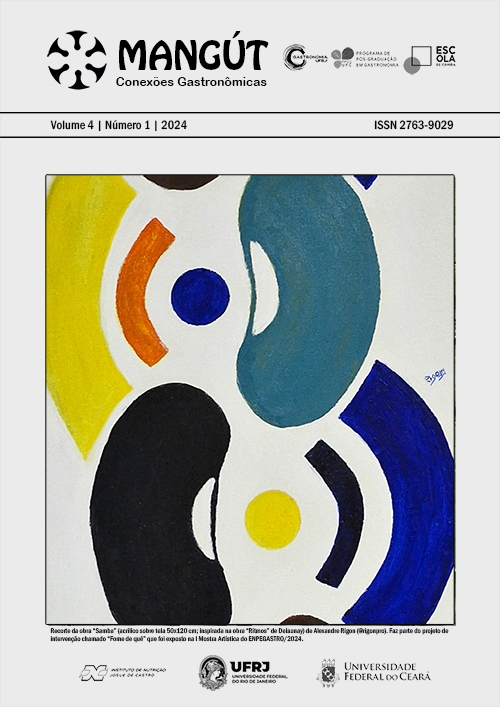Making women’s work visible, valuing Cerrado sweets and promoting the use of its fruits in Gastronomy: the case of the Gastronomic Festival of Arraias (TO)
DOI:
https://doi.org/10.70051/mangt.v4i1.62939Keywords:
Gastronomy, Gastronomic Festival, Traditional cuisine, Cerrado, Women's workAbstract
The production of Gastronomic Festivals to promote Tourism in small towns and, mainly, as a way of valuing traditional cuisine has gained strength in recent years among Brazilian municipalities. Normally this movement is supported by local city halls or cultural development agencies. In response to this movement, the Arraias Gastronomic Festival – TO was created, an event led by teachers and students from the Heritage and Socio-Environmental Tourism course at the Federal University of Tocantins. The project involves three in-person editions (2017, 2018 and 2019), and in 2020, when all of humanity was going through the COVID-19 Pandemic, it was necessary to rethink the format of the event, which resulted in a hybrid festival proposal, in a competition between jams, jellies and liqueurs that involved participants from more than twenty Brazilian municipalities located in the Cerrado biome. Therefore, this article aims to socialize the main results of this proposal, which had as its main objectives the visibility of female work, the valorization of cerrado sweets and the promotion of the use of cerrado fruits in gastronomy.
Downloads
Published
Issue
Section
License
Copyright (c) 2024 Thamyris Carvalho Andrade

This work is licensed under a Creative Commons Attribution 4.0 International License.
Autores que publicam nesta revista concordam com os seguintes termos:
- Autores mantém os direitos autorais e concedem à revista o direito de primeira publicação, com o trabalho simultaneamente licenciado sob a Licença Creative Commons Attribution que permite o compartilhamento do trabalho com reconhecimento da autoria e publicação inicial nesta revista.
- Autores têm autorização para assumir contratos adicionais separadamente, para distribuição não-exclusiva da versão do trabalho publicada nesta revista (ex.: publicar em repositório institucional ou como capítulo de livro), com reconhecimento de autoria e publicação inicial nesta revista.
- Autores têm permissão e são estimulados a publicar e distribuir seu trabalho online (ex.: em repositórios institucionais ou na sua página pessoal) a qualquer ponto antes ou durante o processo editorial, já que isso pode gerar alterações produtivas, bem como aumentar o impacto e a citação do trabalho publicado (Veja O Efeito do Acesso Livre).



